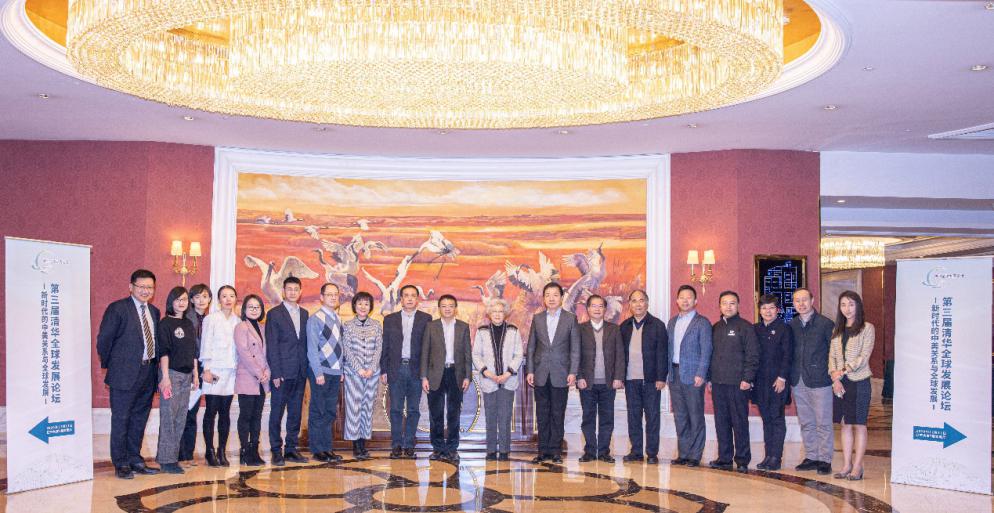On December 11, the 3rdTsinghua University Global Development Forum, co-hosted by the School of Social Sciencess of Tsinghua University, Institute of World Economics and Politics of Chinese Academy of Social Sciences and the Academy of Contemporary China and World Studies, was held in Beijing. The forum, themed “China-US Relations and Global Development in the New Era”, included three panel sessions on the topics of “China-US Relations in the New Era”, “Global Development amid COVID-19 Pandemic” and “Chinese Diplomacy”. Guests from Tsinghua University, Peking University, Renmin University of China, China University of Politics Science and Law, Beijing Foreign Studies University, Jilin University, Chinese Academy of Social Sciences, the Chinese People’s Association for Friendship with Foreign Countries, Food and Agriculture Organization of the United Nations and some other units attended in the forum.
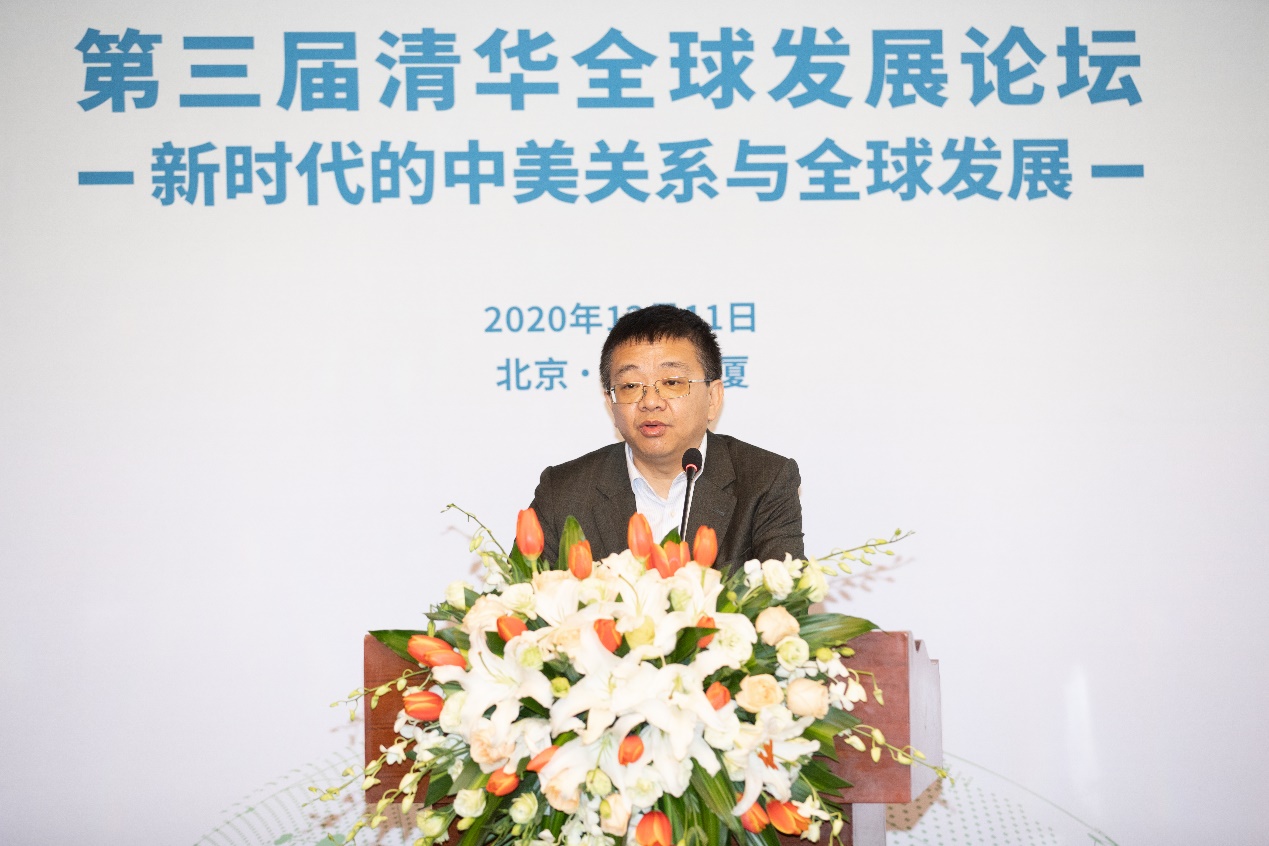
Peng Gang, the Vice President of Tsinghua University, attended the opening ceremony and delivered a speech. In his speech, he emphasized that this forum is of strategic and academic significance as it discusses a range of major issues facing the world’s current development under the theme of “China-US Relations and Global Development in the New Era”. Peng also introduced the opportunities facing the Tsinghua University in liberal education and the basic direction for Tsinghua to develop its politics science, and expressed his expect that the guests present here would contribute their wisdoms to the Double First Class University Plan.
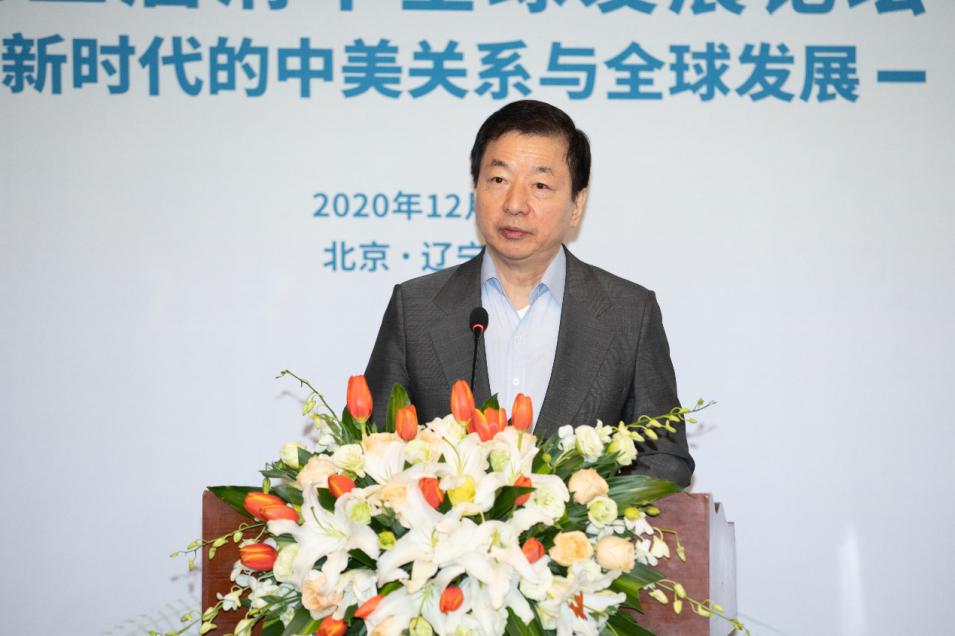
Zhou Mingwei, senior research fellow at the Academy of Contemporary China and World Studies, Former President of China Foreign Languages Publishing Administration, the President of Translators Association of China, made a speech in the forum. He pointed out that as we are facing a period of major change never seen in a century, it is of great significance to study the future of the China-US relations, and the think tank would play an indispensible role. Tsinghua University should continue to give full play to its advantages in country studies.
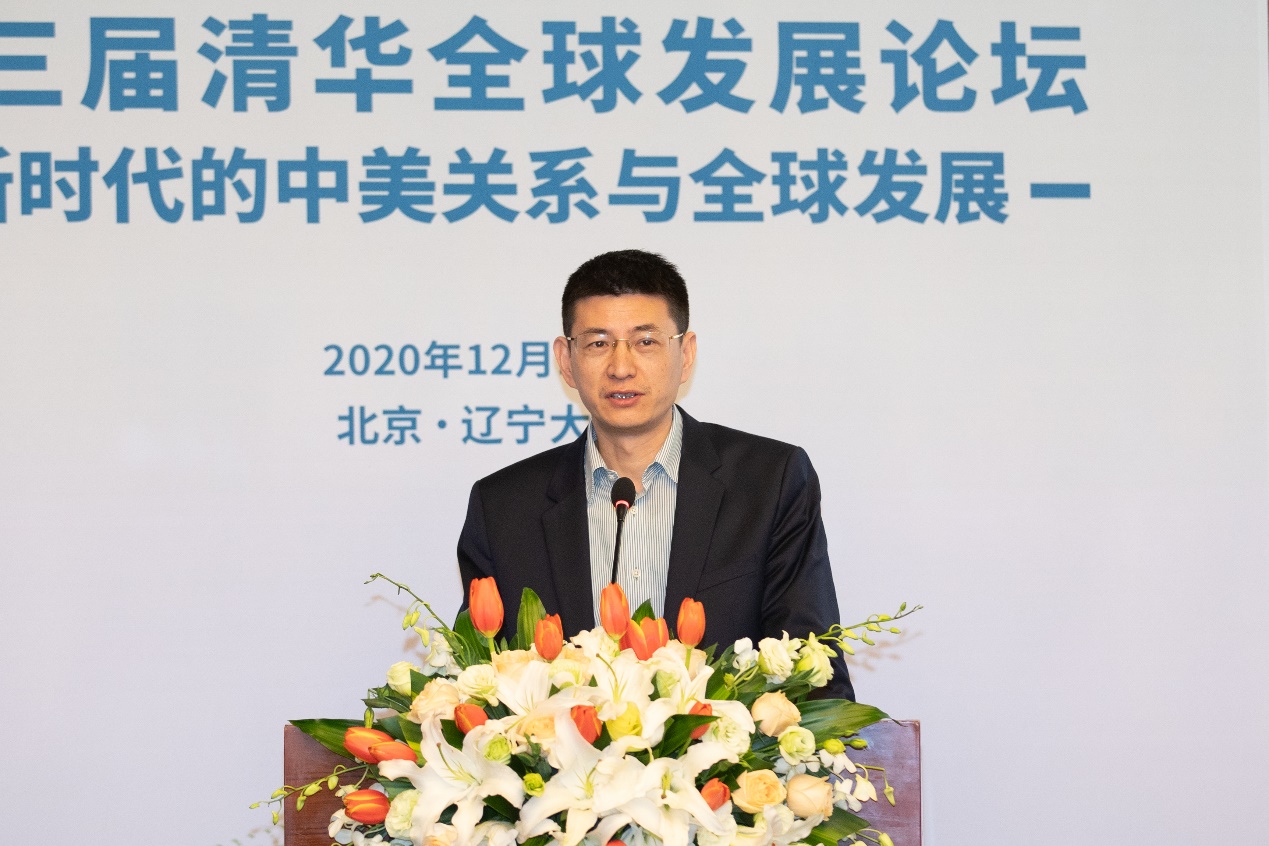
Yao Zhizhong, the Party Secretary and the Deputy Director of the Institute of World Economics and Politics of the Chinese Academy of Social Sciences, gave an address in the forum. Proceeding from the guiding principles of the 5thPlenary Session of the 19thCPC Central Committee, he elaborated the three major challenges facing the world development, that are, constraints to the world’s overall sustainable development, restrictions on the development of developing countries from developed countries, and unbalanced development among different social groups within a country. He highlighted that as the above three challenges are shaping today’s global landscape, it is particularly important to explore the future of global development in this context.
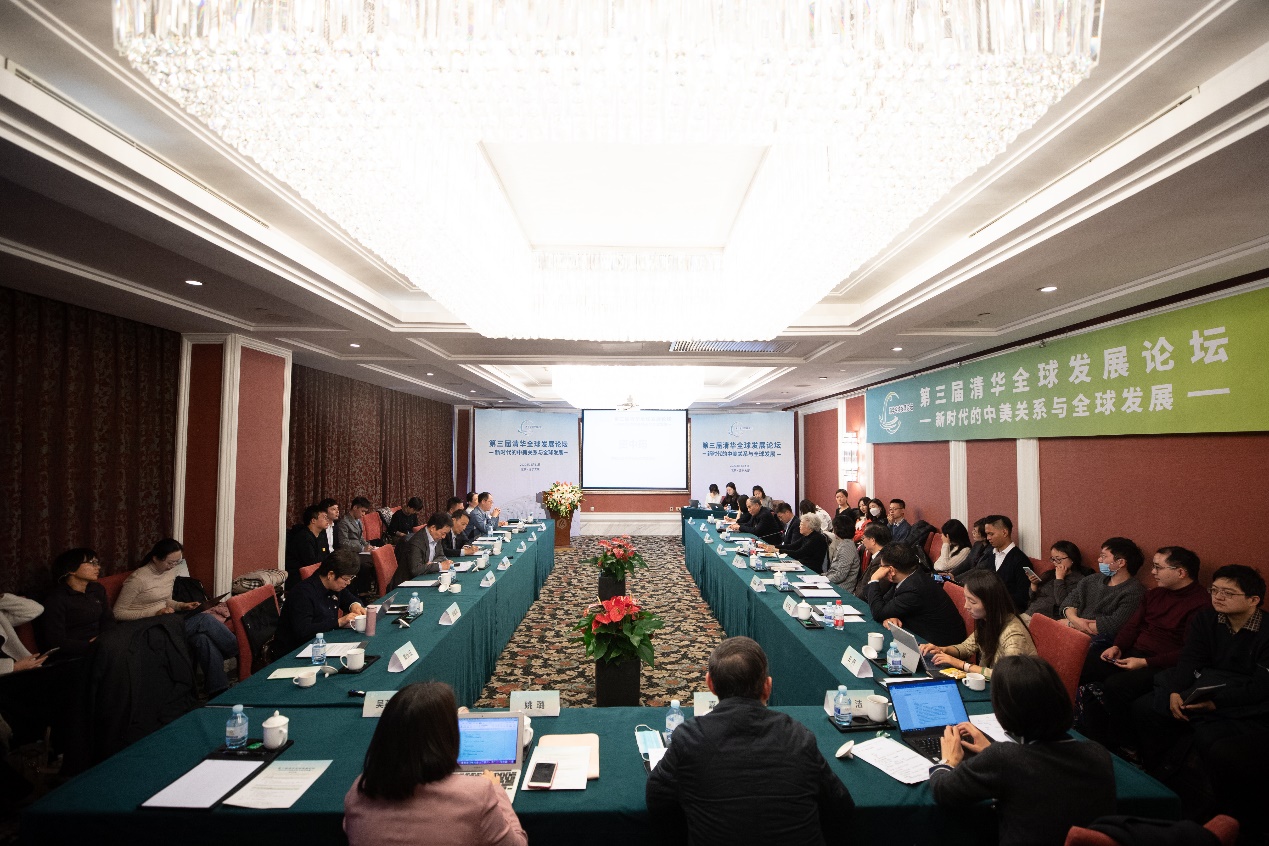
Zhao Kejin, the Vice Dean of the School of Social Sciencess of Tsinghua University, made a meeting summary. He pointed out the duality and complexity that is defining the present world. The issues deterring global progress have prompted people to reconsider the value of beliefs. In this process, a new discipline may emerge.
As a high-end think tank forum launched by Tsinghua University three years ago, the forum has always been committed to dissecting global concerns by pooling wisdoms from national ministries, universities, research institutes and social think tanks. The forum has been broadly supported by people from all sectors in the international community and has produced positive social repercussions. It serves an important platform that brings together famous experts and scholars across the world to discuss global development. Focusing on the theme of China-US relations and global development in the new era, participating experts and scholars actively contributed their ideas and suggestions on what moves should China take to handle China-US relations and follow the underlying trend of global development. The fruitful discussions have important implications for the present as well as far-reaching theoretical significance.
